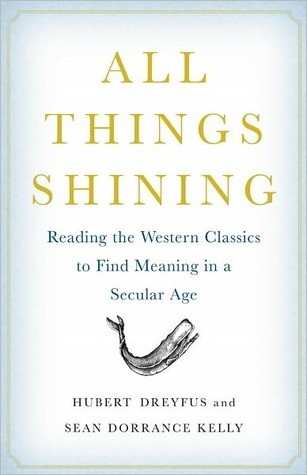More on this book
Kindle Notes & Highlights
Read between
April 7 - April 14, 2021
not only is each group a unity, each claims to be universally right.
Apollo articulates the new, detached conception of justice when he proclaims: Never, for man, woman, nor city … have I spoken a word, except that which Zeus, father of the Olympians, might command. This is justice.1
We drive from home those who have shed the blood of kin.2
Homeric culture repressed the natural tendency toward blood loyalty.
Homer’s polytheism allows these multiple roles to coexist in one individual, without any sense that the conflicts among them must be reconciled.
Whether Clytemnestra’s action was justified or not depends upon whether it was an act of vengeance directed at the murderer of her daughter or an act of regicide directed at the rightful king: whether it was done in the name of the old gods or the new.
Should he kill her in an act of furious revenge as the murderer of his beloved father, or should he kill her coolly and dispassionately, as the murderer of his rightful king?
reason is the slave of the passions.
Homer calls the Furies “loathsome,” and mentions them only five times in the whole of the Odyssey.
Aeschylus sees that passions such as moral outrage enforce morality and that forces such as sexuality are necessary to motivate actions.
the Golden Age of Athens lasted only fifty years.
thanks to works of art paradigmatic for the age, one knew where one stood and what one had to do.
What makes sense as a life worth aspiring to in one age might well be reviled in another.
To be a saint or a hero is not just to behave a certain way; it is to be held up as worthy for doing so.
works of art work; they gather practices together to focus and manifest a way of life.
The job of a work of art is to disclose a world, give meaning, and reveal truth.
Articulators focus and so renew what is meaningful in a culture; they bring out a shared-background understanding of what matters, and therefore of what it makes sense to do.
Jesus says: “[You] were told, ‘Do not commit adultery.’ But what I tell you is this: If a man looks on a woman with a lustful eye, he has already committed adultery with her in his heart.”23 This makes the inner desires of the heart more important than outward actions.
In his new vocabulary Jesus describes his marginalizing of the law by saying that, rather than obeying the law, he “fulfills” it. That means one does not take the Law and its prohibitions literally, but one is drawn to act in a way that manifests the spirit of the law.
Descartes claims that human subjects at their best are completely detached, self-contained, and, far from being passive, have a willpower so great that it rivals God’s.
But in our current Cartesian characterization of the individual as a subject, moods become private, inner states that are essentially unavailable to others.
Before Descartes, people did not understand themselves as subjects and objects, but rather as God’s creatures.
Kant argued famously that Enlightenment means learning finally to take responsibility for your own actions.
What Homer considers to be the paradigm of human excellence seems to Kant, and to most of us, hardly to count as human action at all.
the history of the last 150 years suggests that we are not the proper source for meaning in the world.
To the extent that we find some sympathy with Ahab, then we are in league with the devil as well.
What Ahab hates most thoroughly is the idea that the universe might be inscrutable to the last; that ultimately there might be “naught beyond.” He therefore holds desperately and passionately to the idea that there is an ultimate, final, and universal truth about how things are; that there is, in other words, a traditional kind of monotheistic God.
Living well in our secular, nihilistic age, therefore, requires the higher-order skill of recognizing when to rise up as one with the ecstatic crowd and when to turn heel and walk rapidly away.
advances in technology have diminished the importance of specialized skills in contemporary life.
Skills reveal meaningful differences to us and cultivate in us a sense of responsibility to bring these out at their best.
technology flattens out human life.
Even worse than losing quality, however, is losing the skill for telling the difference.
Reverence reveals us as cultivators of meaningful distinctions.
the march of technology presents a grave danger.
To aspire to a life that requires no skill to live it well is to embrace the flattened world of contemporary nihilism.
When the GPS is navigating for you, your understanding of the environment is about as minimal as it can possibly be.
The project, then, is not to decide what to care about, but to discover what it is about which one already cares.


